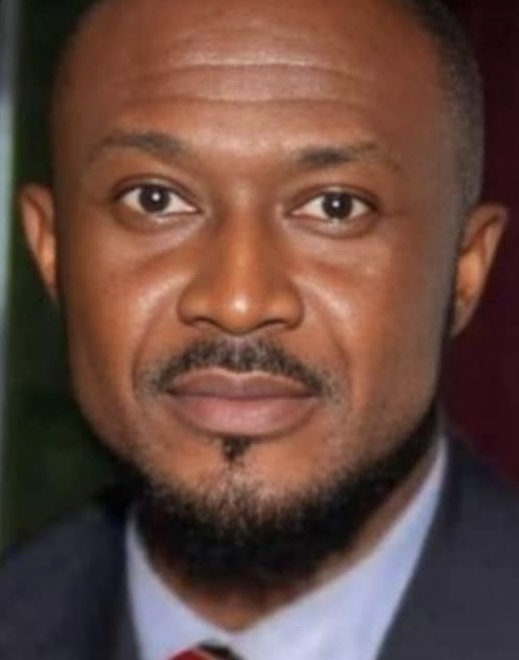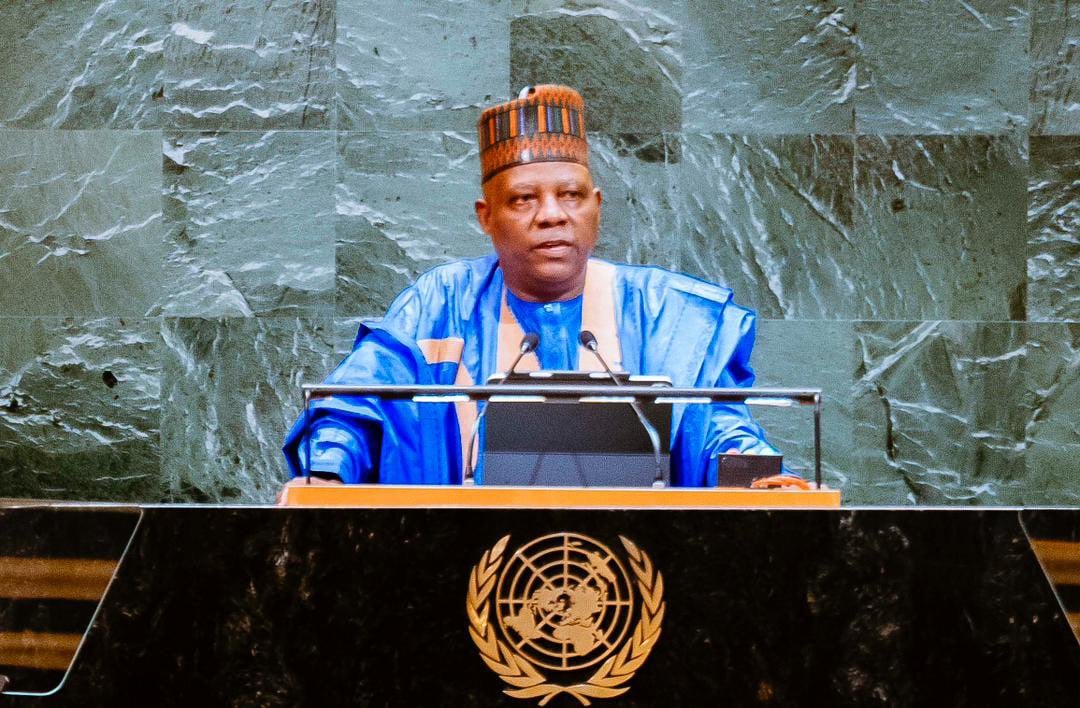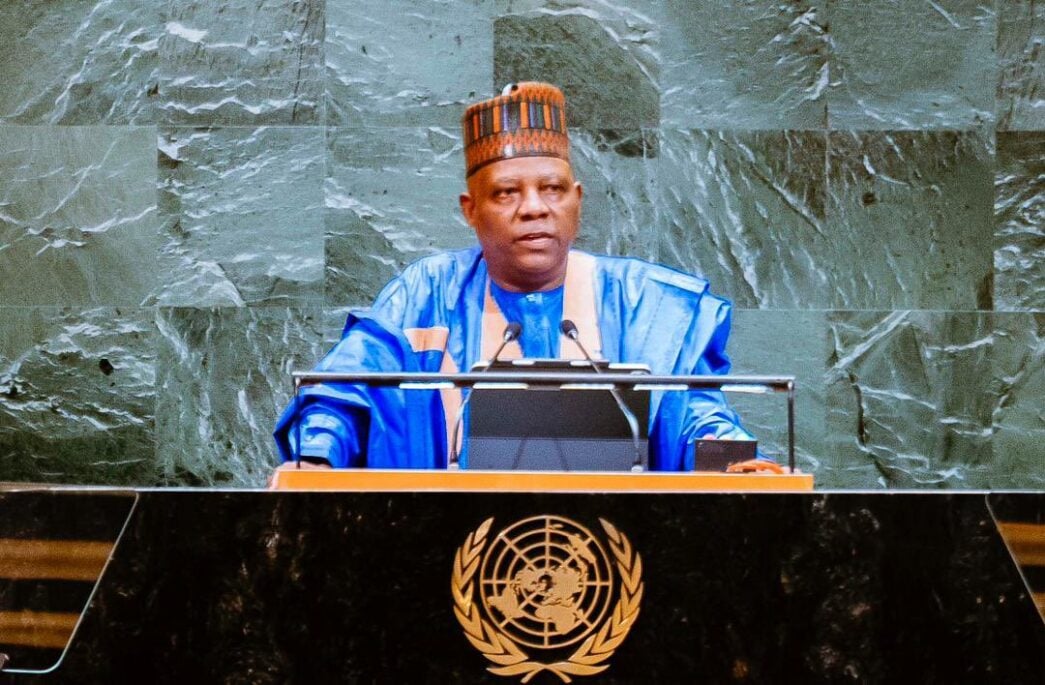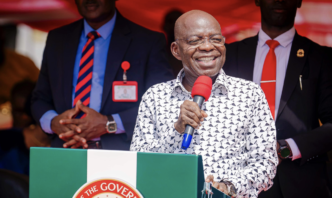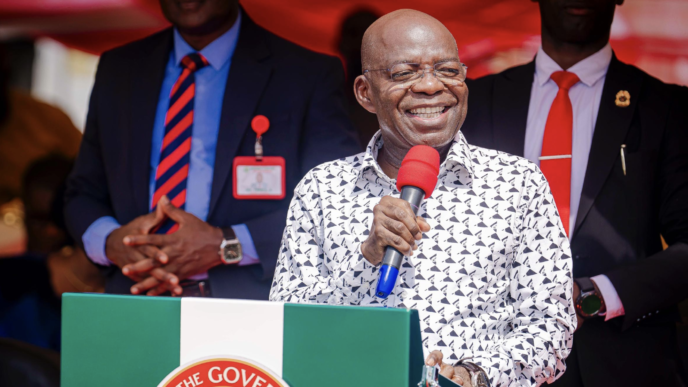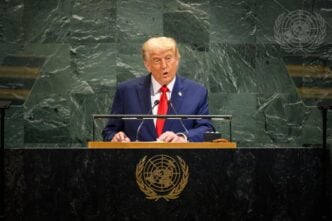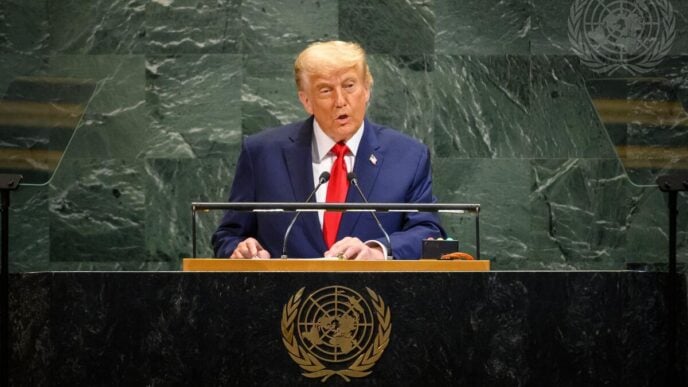The 80th session of the United Nations General Assembly (UNGA) just concluded in New York, United States. However, what has continued to dominate national discourse is President Bola Ahmed Tinubu’s national statement to world leaders at the annual event. His bold policy statement demanding reforms in global governance has strengthened Nigeria’s international standing as one of Africa’s foremost economies.
In the statement that captured the attention of participants and the world in general, President Tinubu unequivocally called for multifaceted reforms of the UN, focusing on key areas that require immediate attention. And Vice President Kashim Shettima, who delivered Nigeria’s policy statement on his behalf, nailed it for Mr President.
One of the key aspects of VP Shettima’s capacity to represent his boss is his ability to understand and articulate the President’s vision. His presentations reflect Tinubu’s policies and ideas, demonstrating a deep understanding of the President’s mind and work.
The Vice President’s adeptness at representing the President effectively has been evident at various international fora. With the brilliance with which he marshalled and delivered President Tinubu’s foreign policy statement, Nigeria’s voice was clear and loud at the international gathering.
Advertisement
Unlike some world leaders who made their growing disenchantment fully palpable in their addresses at the global stage, President Tinubu did not require any show of righteous indignation to pass on the message of Nigeria and the continent. Subtly, he appealed to the interest of the international community instead of the regional interest. Categorically, he warned that the global body must embrace sweeping restructuring or face growing irrelevance, with world events increasingly bypassing its influence.
One of Nigeria’s primary concerns is the reform of the UN Security Council. The Nigerian leader stood his ground in demanding a permanent seat for Nigeria and Africa in the Council. He argued that this is the only way the country’s growing population, economic influence, and contributions to global peacekeeping would be reflected.
President Tinubu’s point of contention on this is clear: Nigeria, a nation that has transformed from “a colony of 20 million people, absent from the tables where decisions about our fate were taken” to “a sovereign nation of over 236 million, projected to be the third most populous country in the world, with one of the youngest and most dynamic populations on earth,” is politically and morally certified to represent Africa on the UN Security Council. This move is part of a broader process of institutional reform aimed at making the UN more representative and effective.
Advertisement
President Tinubu’s address accentuates Nigeria’s commitment to peace, development, unity, multilateralism, and human rights. He emphasised the need for reform and cooperation in tackling global challenges, including climate change, irregular migration, and financial instability. His diplomatic approach seeks to foster partnerships and cooperation, showcasing his negotiation skills.
The President identified an underlying pattern missing in the UN: the need for a more inclusive and effective multilateral system. For the most part, he took a pragmatic view of multilateralism, regarding it as useful but only when it is all-inclusive. By addressing the challenges and opportunities outlined in his policy statement, nations can work towards a better future for all. The emphasis on reform, cooperation, and collective action underscores the importance of multilateralism in achieving global peace and development.
On the global front, President Tinubu declared Nigeria’s support for a two-state solution to the Israeli-Palestinian conflict. He described this approach as “the most dignified path” to lasting peace, stressing that Palestinians “are not collateral damage in a civilisation searching for order,” but human beings deserving of the same freedom and dignity as everyone else. He urged the international community to take concrete actions to protect Palestinian lives and facilitate a peaceful resolution.
By advocating for a two-state solution, President Tinubu’s stance aligns with other countries, including the United Kingdom, France, Canada, Australia, and Portugal, which have also called for Palestinian statehood. This move marks a significant moment in Nigeria’s foreign policy posture, showcasing its commitment to peace, human rights, and collective security.
Advertisement
Sadly, unpatriotic and unscrupulous politicians in Nigeria have lashed out at the Palestine issue to score cheap political points. The opposition African Democratic Congress (ADC) faulted President Tinubu’s two-state solution stance on the Israeli-Palestinian conflict, saying he failed to address the worsening insecurity and economic hardship in Nigeria.
But this is a view based, in the first place, on a misleading oversimplification and ignorance of the nuances and complexities of global politics of the time. Fortunately, well-meaning Nigerians have described the opposition’s stance as unnecessary critique, emphasising the need for politicians to prioritise national and global interests over partisan politics, especially when it comes to sensitive issues like human suffering. On Palestine, the critics are hereby handed a damning verdict.
President Tinubu must not be seen as making a case for Africa alone at the global event. His bold policy statement on the global stage shouldn’t have been slanted towards regional demands. It is a call for global awakening. What he simply did was prioritise empathy and compassion over political gains, especially in situations involving human suffering, hence maintaining a level of statesmanship and decorum in global political discourse.
Besides, President Tinubu did not only focus on the crisis in Palestine. He also condemned the ongoing humanitarian crises in Gaza and other conflict zones, maintaining that efforts must be redoubled to de-escalate global tensions. Describing the human cost as “stains on our collective humanity,” he tasked world leaders with the need for coordinated global efforts to combat tensions across the globe and address the underlying causes of regional conflicts and instability.
Advertisement
Was Tinubu actually mum on the Nigerian situation? Certainly not! He said that while “Nigeria has continued to face the threat of violent extremism and terrorism,” his administration is tackling the menace through values and ideas. “At home, we confront the scourge of insurgency with resolve. From this long and difficult struggle with violent extremism, one truth stands clear: military tactics may win battles measured in months and years, but in wars that span generations, it is values and ideas that deliver the ultimate victory,” he added.
On the ongoing economic reforms in Nigeria, President Tinubu acknowledged the difficult reality facing his citizens but said that Nigeria’s economic reforms represent a model for resilience. He noted that his administration has taken difficult but necessary steps to restructure the economy and remove distortions, including subsidies and currency controls that benefited the few at the expense of the many. Expressing confidence in the power of the market to transform, he said, “Our task is to enable and facilitate, and to trust in the ingenuity and enterprise of the people. But the process of transition is difficult.”
Advertisement
The President proposed the setting up of a new, binding mechanism to manage sovereign debt, including an International Court of Justice for money. According to him, this would enable countries to break free from the “economic straitjacket of primary production of unprocessed exports” and promote local value addition in agriculture, solid minerals, and petrochemicals.
The proposal emphasises the need for urgent action to promote debt relief, not as an act of charity, but as a clear path to peace and prosperity that benefits everyone. It aims to help emerging economies escape the constraints of debt and focus on development and growth. He stressed that the current system is not suited to address the needs of developing countries, citing Africa’s total debt of around $685.5 billion and debt service payments of $88.7 billion in 2025.
Advertisement
President Tinubu also called for a complete overhaul of the global financial architecture governing Africa’s mineral resources. He said African nations must be allowed to finance their own mineral sectors and assert control over African products’ global supply chains, promoting economic development and sovereignty. He also emphasised the importance of benefit-sharing from strategic minerals. Nigeria believes that countries hosting these minerals should reap the benefits, not just through revenue but also through investment, partnership, local processing, and job creation.
The President also called for a dedicated initiative to close the digital divide. This initiative would bring together researchers, the private sector, governments, and communities to promote access to technology, mitigate potential negative impacts, and enable growth. Closing the digital divide is crucial for ensuring that all nations, especially developing ones, can participate in the global digital economy and benefit from technological advancements.
Advertisement
No doubt, what has become clear about Senator Shettima’s diplomatic outings is that President Tinubu’s choice of Vice President has proven to be a strategic move, showcasing effective leadership and partnership. VP Shettima’s performance at the 80th UNGA demonstrates his capacity to stamp the President’s authority on the global stage. His ability to convey the President’s vision and policies seamlessly has been particularly notable.
It’s clear that their cordial partnership and collaborative leadership style, characterised by mutual trust, are crucial factors in Nigeria’s current progress. Their bond has proven to be solid and effective, with VP Shettima demonstrating absolute loyalty to President Tinubu and working tirelessly to support his initiatives and vision for Nigeria. They are united by a shared goal to engender a strong economy, deliver prosperity, and improve living standards for Nigerians based on the Renewed Hope Agenda.
Beyond the General Debate, the Vice President met with UN Secretary-General António Guterres at UN headquarters to personally discuss Nigeria’s quest for a permanent seat on the United Nations Security Council and other matters of mutual interest. He also attended a meeting of the AU Peace and Security Council at the level of Heads of State and Government held on the margins of UNGA 80.
Senator Shettima also held bilateral meetings with key leaders, including the President of Namibia, Netumbo Nandi-Ndaitwah, and the Gates Foundation’s CEO, Mark Suzman. He reaffirmed Nigeria’s commitment to deepening bilateral ties with Namibia, calling for expanded investment in Nigeria, particularly in education and human capital development.
The Vice President also engaged with investors, highlighting Nigeria’s growth ambitions and economic reforms under the Tinubu administration. He emphasised the country’s potential for investment, citing macroeconomic stability, improved productivity, and strategic investment in infrastructure, healthcare, agriculture and education.
Nkwocha is Senior Special Assistant to the President on Media & Communications (Office of the Vice-President).
Views expressed by contributors are strictly personal and not of TheCable.
